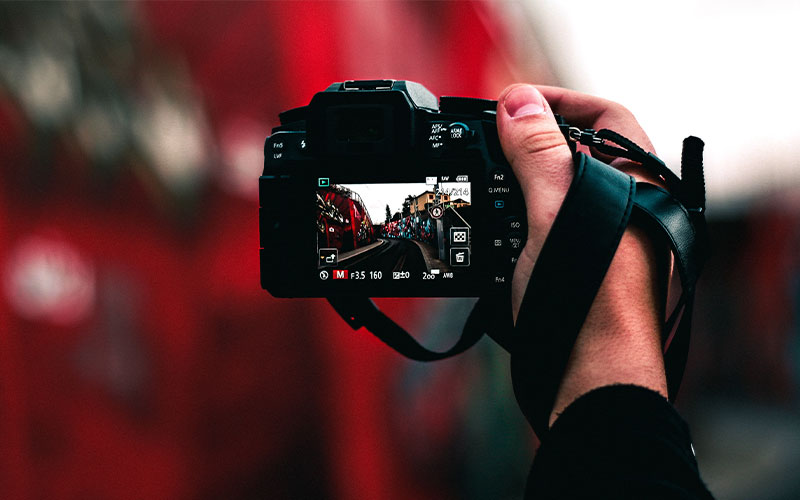Photography | Photographer Contracts in Spokane Washington
I enjoy photography. I am not claiming I am good at it or anything of the sorts. I do belong to the Inland Outlook Photo Club of Spokane and enjoy learning photography as a hobby. Due to my hobby, I have met several photographers, many of whom have become very good friends.
It seems that every now and then I receive questions regarding photography / photographer contracts. They also ask about copyright, model releases, and licensing their work. I created this post to generally discuss those issues.
Should a photographer have a written contract?
Only if the photographer would like to be paid!
In Washington, oral contracts are fully enforceable; therefore it is not a requirement that such contract be in writing. However, photographers typically would like to outline the terms of their work (i.e. when the pictures will be approved by the client, if they will be printed, what sizes will be provided, if original files will be provided, who will own the copyright, terms of payment, deposit, etc.).
It is because there are so many issues and legal concepts with photography contracts, that a photographer / business owner would want to not only have a written contract, but a contract that is drafted, or at least, reviewed by a local attorney. Usually, a photographer could make several thousand dollars in one transaction. This creates a substantial incentive for a client/customer to claim a breach of the contract, thereby attempting to avoid payment. Having a proper written contract, signed by the client / customer, is the first step to ensure payment.
What should the contract say?
A contract for photography should outline the normal terms of any contract (list the parties, subject matter, price, delivery date, etc). The contract should also outline who retains the copyright of the pictures.
Photographers understand that they are the authors of the pictures and therefore, in most circumstances, they would be protected by copyright and intellectual property laws. There are, however, circumstances where the copyright of the pictures will not belong to the photographer, but to the party hiring them. Contracts for hire typically grant the copyright to the client (in general terms, a contract for hire is an employment agreement for a limited amount of time with the possibility of full time employment at the end of the prescribed period).
Another example is simple employment. If a photographer works for a company, business, or even a government agency, and the photography is produced during work hours, the copyright typically belongs to the employer (even if the equipment is owned by the photographer).
This simple fact creates a lot of friction with clients/customers. Clients and customers often believe that if they pay thousands of dollars to a photographer for their time, they should be entitled to the use of pictures as they see fit. Many get aggravated when the pictures are released (if they are released at all) with a watermark.
Although the photographer maybe legally correct, the photographer is better protected by outlining the copyright ownership right in the contract. Note: a photographer could sell the copyright to their client as part of the agreement.
Some Spokane photographers are using this as a marketing technique. If a client/customer wants to retain the copyright and ensure that they can use the pictures, without any restrictions (i.e. watermark), a client should require that such terms be presented in the contract. Although most photographers would not agree to that provision, it is far better for a client to understand this prior to signing the contract than after the photographer takes the pictures.
Terms of Acceptance
A photography contract should also outline how the photography will be accepted by the client / customer. These terms should protect the photographer when a client/customer becomes difficult and refuses to accept the pictures as acceptable.
Typically, a photographer should give proofs to the clients and allow them a reasonable time to inspect them. If the client/customer has no objections, the work should be deemed accepted and payment due at the time of delivery. However, if there are no terms of acceptance written in the contract, a customer could refuse to accept the pictures, citing the pictures are not up to her/his standards, and attempt to avoid payment.
Licenses / Model Release
Most photographers that have been in the business for a period of time understand the importance of having a proper model release. Taking a stunning picture of a model may not be worth anything if there is not a proper release from the model.
Equally, the photographer needs to procure the model release from anyone in the pictures (anyone whose face can be ascertained). Perhaps the best time to secure such release is to do it at the same time the photographer is discussing the terms of a contract. With a proper model release, the photographer may be able to use the pictures to promote his/her own work.
Licensing pictures is also profitable for a photographer. What is important to remember here is that most of the time, when an author gives a license, the license is presumed to grant all rights. If the photographer wants to limit the use (i.e. for editorial use, commercial use, personal use, etc.) the license must be in writing. If the license is not in writing, clearly delineating the limitations, a party may be able to use the picture in manners that were not originally intended.
A photographer should always procure in writing model releases and/or grants of licenses.
Limitation of Damages
A liquidated damages clause should also be included in the contract. A photographer should limit the amount of damages a client/customer could seek in case there is a breach by the photographer.
It is not uncommon to see a party seeking damages in excess of the contract amount. Parties often argue that because an event has to be recreated in order to be re-photographed, that are will seeking compensation to recreate the event (i.e. a wedding).
In addition, depending on the nature of the event, parties may seek emotional distress and other related damages. Damages should be properly limited to avoid these types of arguments.
Final Considerations
The outline above is only a guide. There are other terms, clauses, and conditions that should be added to a photography/photographer contract in Spokane, Washington.



